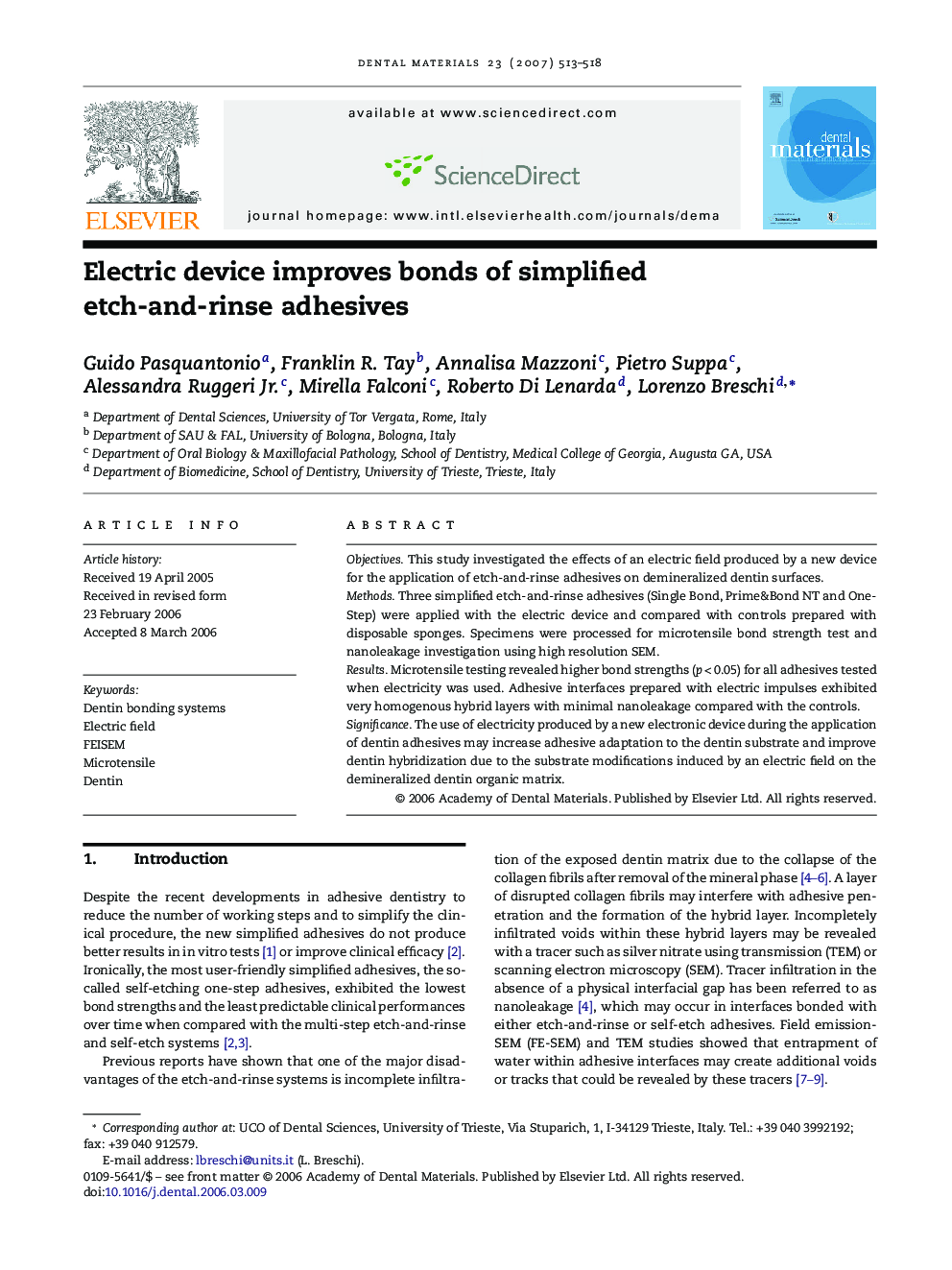| Article ID | Journal | Published Year | Pages | File Type |
|---|---|---|---|---|
| 1423168 | Dental Materials | 2007 | 6 Pages |
ObjectivesThis study investigated the effects of an electric field produced by a new device for the application of etch-and-rinse adhesives on demineralized dentin surfaces.MethodsThree simplified etch-and-rinse adhesives (Single Bond, Prime&Bond NT and One-Step) were applied with the electric device and compared with controls prepared with disposable sponges. Specimens were processed for microtensile bond strength test and nanoleakage investigation using high resolution SEM.ResultsMicrotensile testing revealed higher bond strengths (p < 0.05) for all adhesives tested when electricity was used. Adhesive interfaces prepared with electric impulses exhibited very homogenous hybrid layers with minimal nanoleakage compared with the controls.SignificanceThe use of electricity produced by a new electronic device during the application of dentin adhesives may increase adhesive adaptation to the dentin substrate and improve dentin hybridization due to the substrate modifications induced by an electric field on the demineralized dentin organic matrix.
